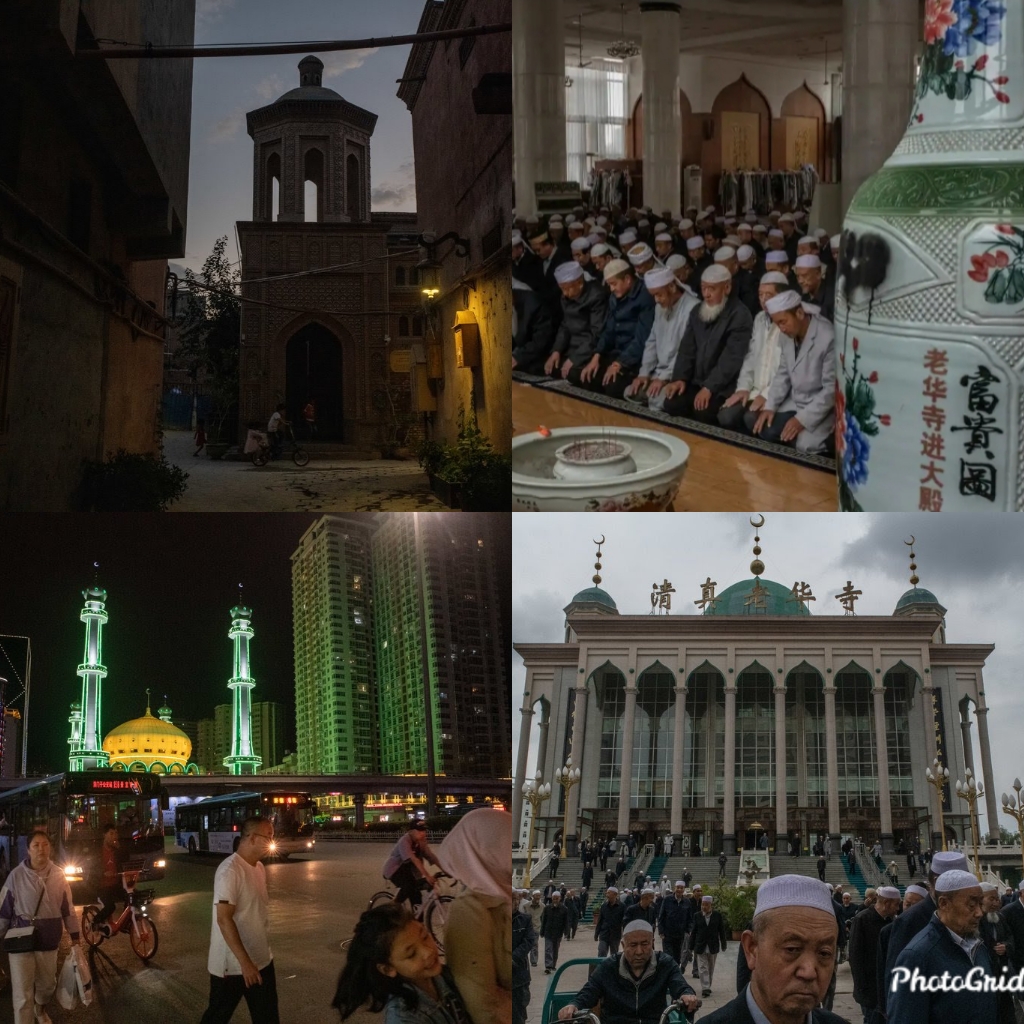A one-day post-graduate colloquium, held on Sunday, September 22, 2019 at the Department of Mass Communication, Bayero University, Kano had media scholars and researchers in attendance. MUSLIM NEWS NIGERIA Reports…
The post graduate students of Mass Communication department and few others with Social Science background from Bayero University, Kano State, converged at the Faculty of Communications lecture hall for the 2019 colloquium with the theme, “Communication and Media Research in the Muslim World”.
The event, a collaborative effort between the International Institute of Islamic Thought (IIIT) Nigeria, and the department of Mass Communication, brought together scholars, researchers and students who expressed interest in investigating stereotypes, discrimination and biased reportage against Islamic values in the media.
Why we initiated the colloquium – IIIT Nigeria Coordinator
In his opening remark, the National Coordinator of IIIT Nigeria, Prof. Salisu Shehu welcomed the guests and participants as he explained the motive behind the colloquium on media research.
The IIIT being a centre of excellence in educational research and Islamic thought, Prof. Shehu said the institute found it wholesome to partner with the faculty of Communication, BUK, to organise a colloquium with the thrust on Islam and the media in Nigeria and with the motive of highlighting major issues that could elicit evidence-based research in the area.
Prof. Salisu, who is also the Deputy Secretary General of Nigerian Supreme Council for Islamic Affairs (NSCIA) adumbrated the achievements and progress recorded by the IIIT since its inception in the early 1980s, including the establishment of branch offices across the globe and education reform projects in many institutions in Nigeria and across the world.

He encouraged participants to patronize programs and activities of the IIIT by engaging in rigorous research with an outlook of knowledge integration.
Thereafter, he assured the participants of IIIT’s readiness to issue research grants to intellectuals (both lecturers and students) who are interested and willing to conduct researches in the areas of education reform, thought and integration of knowledge.
According to him, patronizing programmes and activities of the IIIT by engaging in rigorous research with an outlook of knowledge integration is highly encouraged.
IIIT is ready to issue research grants to intellectuals (both lecturers and students) who are interested and willing to conduct researches in the areas of education reform, thought and integration of knowledge.
Media unfair to Islam, profiled Fulanis – Abubakar
Presenting a 26-page paper titled “Contemporary Issues in Media and Islam in Nigeria”, a media practitioner and author of Muslims and the Threat of the Media, Mallam Rasheed Abubakar said the Nigerian media and their counterpart in the west are usually not fair to Islam as they tend to always portray the adherents of the religion in derogatory manners in their News reports.
Illustrating with examples of front covers from top newspapers in Nigeria and some Western media, the speaker, who is the publisher of a Lagos-based Islamic newspaper, Muslim News Nigeria, established that the unfair treatment and double-standard attitude has come to a point where complying with some Islamic teachings, cultural values and spiritual ideals are passed off by media as symbols of terrorism and religious fanaticism.
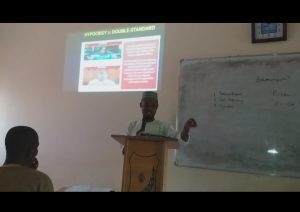
He noted that nefarious acts committed by the non-Muslims are not reported as terrorism, extremism or fundamentalism in the media.
According to him, when a white terrorist, Benton Tarrant massacred 50 innocent Muslims, injured another 50 at two mosques in New Zealand, the media didn’t go hard on him. He was described as ‘angelic boy, who grew into an evil far-right mass killer’ according to Daily Mirror of Saturday, March 16, 2019.
“‘Angelic boy…?’ Is that a befitting adjective for a man who just killed 50 people? Why not terrorist?” Abubakar asked, adding that, “To the western media, he was not a terrorist because he is a Caucasian and not an Arabian. He isn’t a Muslim but Christian. He didn’t put on a turban, neither did he grow beard. And he didn’t voice out the takbiraat while committing his heinous crime. That’s one of the examples of the media double standard.”
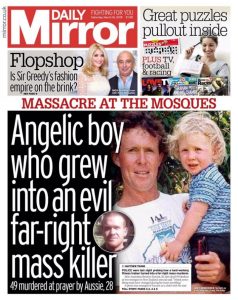
Abubakar, who is also a columnist with Daily INDEPENDENT argued that the Fulanis are the most profiled ethnic group that have dominated the news more than ever before, since the coming of President Muhammadu Buhari.
He said, “The Fulanis, mostly Muslims, have dominated the news in the last four years for negative reasons and no thanks to the incessant ‘herdsmen/farmers clashes which have claimed the lives of innocent Nigerians.
Sadly, when it wasn’t a herder attack, the media seem to have the concept ‘fulani herdsmen’ or ‘herdsmen’ a franchise to cover criminality in an asinine attempt to get at the President, who is of Fulani extraction. They tend to criminalise the Fulani and cattle herders with needless generalisation, whereas, not all Fulani are herders and not all herders are criminals,” he added.
Abubakar, stressed that in an ideal society, crimes of any kind should never be linked with a particular religious, ethnic or geographic entity as he said in his words, “Making pejorative references to a person’s ethnic group is against the ethical conducts for Nigerian journalists. Criminals and fraudsters should be exposed and dealt with individually without linking their evils to their faiths or tribes,” he added.
Objectivity and fairness missing in reporting Islam – Dr. Gwandu
Buttressing Mr Abubakar’s notion, another scholar, Dr Umar Jibrilu Gwandu of the department of Mass Communication, BUK, said objectivity and fairness are two of the cardinal principles in news reporting and are unfortunately missing in the reportage of Islam and the Muslims.
Dr Gwandu sued that media reportage centres largely on negative issues associated with Muslims across the globe and at the same time disregarding newsworthy developments and groundbreaking happenings in the Muslim world.
The media scholar further hinted the participants, majority of whom were Post-Graduate (PhD and MSc) students, on researchable areas such as Media depiction of Islamic teachings, Media portrayal of individual Muslims, Media narratives in Muslim-majority environments.
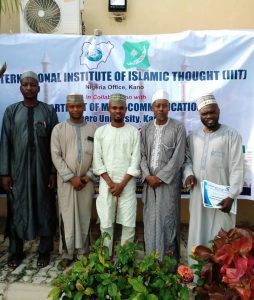
Others include Muslim ownership of the media, Muslim use of the media, Muslim participation in the media, Islamic teachings on media practice, Studies and researches on media by Muslims, The depiction of non-Muslims in Muslim media.
ATLAS.ti can be used to analyse data from media content – Dr Nabil
To get the participants ready and acquainted with the necessary tools for the task ahead, the event featured a data analysis session where Dr Nabil Bello Sa’id of Institute of Islamic Banking and Finance (IIIBF), Bayero University, Kano exposed participants to how to use different softwares for research data analysis.
Muslim News reliably gathered that the participants, both male and female were taught the use of applications such as MS Word, MS Excel, Mendely, SPSS and ATLAS.ti. for research purposes.
Throwing further light on the softwares, Dr. Nabil delineated that the MS Word, though seen as a common computer application, can be used to analyze data especially in qualitative research while MS Excel can be used for quantitative research.
“Mendely is very viable for making systematic literature review while SPSS is used mainly in analyzing quantitative data generated from questionnaires.”
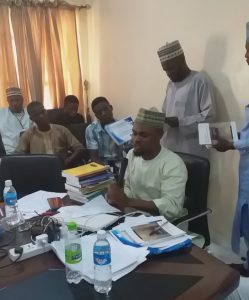
Moreover, the resource persons identified the four types of data as (i) Nominal (ii) Ordinal (iii) Scale and (iv) Ratio.
Continuing, he averred that “the last software ATLAS.ti can be explored to analyze data from media content such as audio-visual recordings, still and motion pictures.”
Finally, he wished the gathering fruitful deliberations and stimulating intellectual discussions.
Our active participation was invested to bring its success – HOD, Dr Ismail
The Head, Mass Communication Department, Dr Haruna Ismail expressed satisfaction for the success of the colloquium as he appreciated the intellectual sagacity of the resource persons.
He told Muslim News that the event was proposed to the department by the Institute, noting that it was well assessed and upon realising the importance of research in the Muslim world and contribution to knowledge, it was embraced.
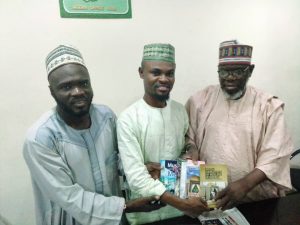
According to Dr Ismail, “Our active participation and involvement was invested to bring it to success. For our students, the benefits cannot be underestimated. Aside exposing them to researchable areas, they would also have the academic platform away from their usual class engagement and activities. The place of interacting with scholars and professionals on the media and communication field is an experience never to be forgotten soon.”
Participant speaks…
Abdulafeez Olayiwola Murtala, an MSc student in Communication lauded the department and IIIT Nigeria for the success of the colloquium, noting that, “It was highly impacting and fruitful. If Allah wills, I’ll like to be a part of the subsequent one and I equally won’t hesitate to invite my journalist colleagues as it will help to right their wrongs.”
Murtala said it would be unworthy of him not to acknowledge the dexterity of the resource persons and their presentations, adding that, they were excellent and sublime.
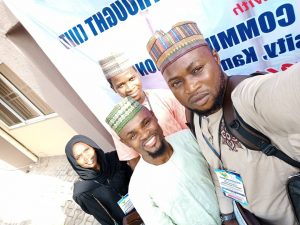
According to him, “What I’ve learnt is tremendous. The speakers vindicated my prior perception of the Nigerian Media which I have hitherto, considered biased and parochial towards the reportage of the Nigerian Muslims. The colloquium has equally augmented my knowledge of the Nigerian Media and how to make a positive change by always resorting to ethical teachings of journalism and more prominently, having the consciousness of Allah (SWT) when discharging my duties.”


